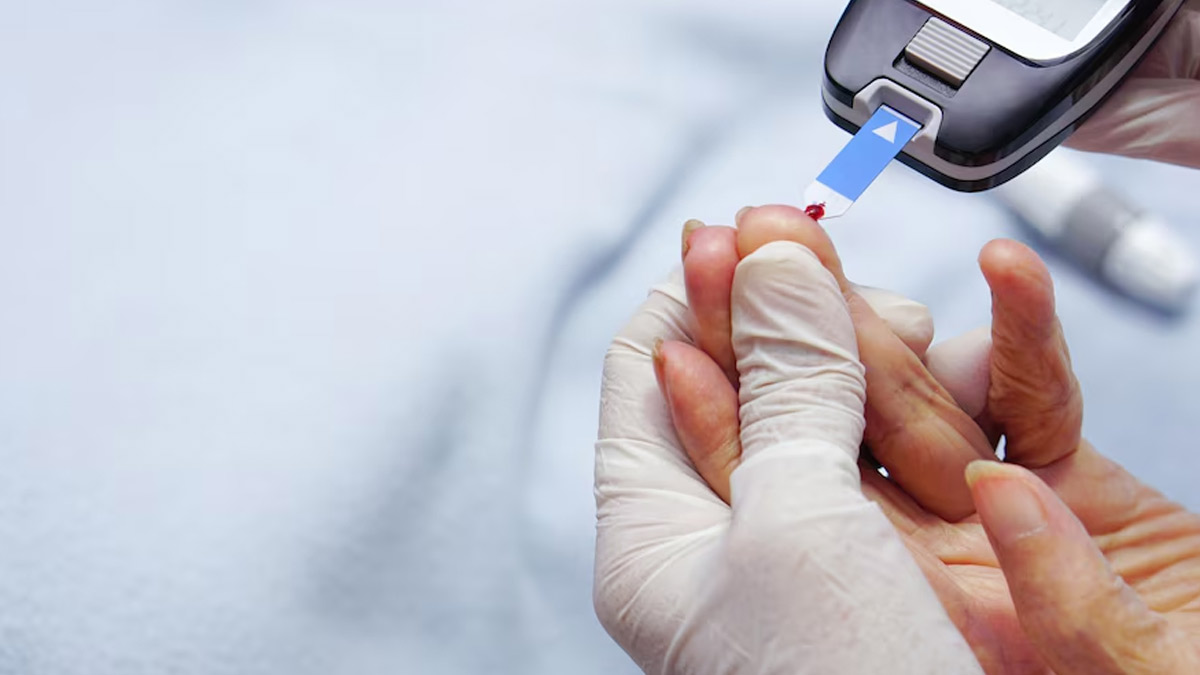
According to the Indian Council of Medical Research (ICMR), there is a significant link between Type 2 diabetes and an increased risk of uterine cancer. This connection underscores the importance of managing diabetes not just for blood sugar control but also for reducing the risk of severe complications, such as endometrial cancer (EC).
Table of Content:-
The ICMR's findings reveal that women with Type 2 diabetes are twice as likely to develop Uterine Cancer. This is because high blood sugar levels in diabetes may promote the growth and spread of endometrial cancer cells.

How Does Diabetes Cause Uterine Cancer?
A study based out of China explained, that obesity, hormonal imbalances, and inflammation are key factors linking diabetes and uterine cancer. Excess weight, often associated with diabetes, disrupts hormone production, leading to high insulin levels, which might contribute to uncontrolled cell growth in uterine cancer.
How Does Obesity Cause Cancer?
Obesity is a well-known risk factor for both diabetes and various forms of cancer, including uterine cancer. Excess weight often leads to a disruption in normal hormone production, particularly insulin. In individuals with diabetes, especially type 2 diabetes, the body becomes resistant to insulin, prompting the pancreas to produce more of it. High insulin levels, or hyperinsulinemia, are associated with an increased risk of cancer. Insulin acts as a growth factor that can stimulate the proliferation of cells, including malignant ones. This excessive cell growth can contribute to the development and progression of cancer in the uterus.
Hormonal Imbalances And Cancer
Hormonal imbalances are another critical factor linking diabetes and uterine cancer. In addition to high insulin levels, obesity can lead to increased production of other hormones such as leptin, which is produced by fat cells and can promote inflammation and cell proliferation. Insulin resistance and the resulting hyperinsulinemia can also lead to increased levels of insulin-like growth factor (IGF-1), which has been implicated in the development of several cancers, including uterine cancer.
Inflammation Paving The Way For Uterine Cancer
Chronic inflammation is a common thread that weaves together obesity, diabetes, and cancer. Obesity induces a state of chronic low-grade inflammation, characterized by the release of pro-inflammatory cytokines and adipokines from fat cells. These inflammatory molecules can create an environment that promotes cancer development by causing DNA damage, promoting angiogenesis (the formation of new blood vessels that supply tumours), and enabling the invasion and metastasis of cancer cells.
Also Read: Doctor Explains The Role Of High Blood Pressure And Diabetes In Eye Diseases

Risk Factors and Prevention Strategies
Several factors can increase the risk of cancer, including:
- Chronic inflammation
- Oxidative stress
- Obesity
- Age
- HPV infection
- Smoking
- Alcohol use
- Insulin resistance
However, a healthy lifestyle can help you reduce this risk. Here are some recommended steps:
- Maintain a Healthy Weight: Prioritise diet and exercise for effective weight management.
- Eat a Balanced Diet: Focus on consuming fruits, vegetables, and whole grains.
- Exercise Regularly: Physical activity supports weight management and overall health.
- Manage Diabetes: Collaborate with your doctor to control diabetes effectively.
- Consider Vaccinations: HPV vaccinations can protect against certain cancers.
- Control Blood Pressure: Managing hypertension is also crucial.
- Regular Checkups: Routine medical visits and open communication with your doctor are vital.
Also Read: C-Section Deliveries Rising In India: Doctor Attributes Parental Choice, Obesity, And Diabetes
By recognising the link between diabetes and uterine cancer and adopting a healthy lifestyle, you can take proactive steps to protect yourself. Early detection is essential; if you notice any concerning symptoms, consult your doctor promptly.
Also watch this video
How we keep this article up to date:
We work with experts and keep a close eye on the latest in health and wellness. Whenever there is a new research or helpful information, we update our articles with accurate and useful advice.
Current Version